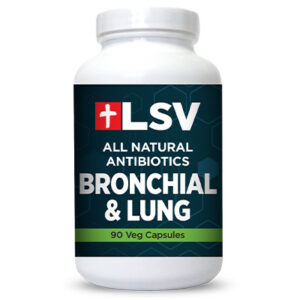Our Company
LSV
SINCE 1992
Founded in 1992, in Winter Park, Florida – LSV Vitamins has been the leader in All Natural Antibiotic supplement sales for over 30 years in the United States.

In the quest for natural remedies, Red Clover (Trifolium pratense) has emerged as a fascinating subject of study. Beyond its traditional use as a forage crop, red clover has gained attention for its potential health benefits, including its antibiotic properties. In this article, we will delve into the world of red clover and explore the scientific evidence supporting its role as a natural antibiotic.
Red clover’s antibiotic properties, rooted in its rich composition of bioactive compounds, present an exciting avenue for exploration in the realm of natural medicine. As research continues to unveil the potential benefits of red clover, it may become a valuable tool in the fight against bacterial and fungal infections. However, responsible and informed use, coupled with further scientific investigation, is crucial to harnessing red clover’s full potential as a natural antibiotic and ensuring its safe integration into healthcare practices.
See All of our effective All Natural Products that have Red Clover Here
All Natural Antibiotics Cold & Flu
All Natural Antibiotics Sinus Support
All Natural Antibiotics Teen Support
All Natural Antibiotics Tooth & Gum
All Natural Antibiotics Bronchial & Lung Support

For Over 30 Years, we have 3rd Party Tested each and every nutrient that go into all of our products: Purity & Effectiveness is how are product continually works for Tens of Thousands of our Customers.
*Disclaimer: None of the above statements have been evaluated by the FDA. These products are not intended to diagnose, treat, cure or prevent any disease. As always, consult your physician before taking any supplements. LSV. Individual results may vary.
 Throat Support - Natures Antibiotics
Throat Support - Natures Antibiotics
 Bronchial & Lung Support - Natures Antibiotics
Bronchial & Lung Support - Natures Antibiotics
LSV
SINCE 1992
Founded in 1992, in Winter Park, Florida – LSV Vitamins has been the leader in All Natural Antibiotic supplement sales for over 30 years in the United States.